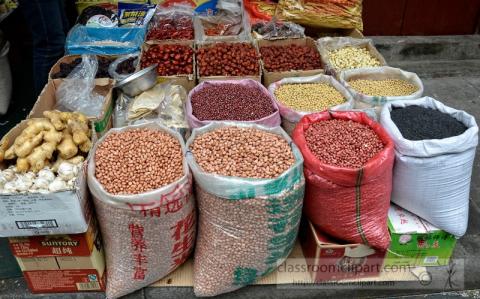In the North, food items and cooking gas prices skyrocket, folks lament
By Jeph Ajobaju, Chief Copy Editor
Food items and cooking gas have skyrocketed in prices in Kaduna, affecting grains and other staples, having risen steadily in markets and shops across the state for months, with many residents now moaning they cannot afford to buy anything of substance to celebrate the Yuletide with their families.
The prices of rice, beans, yams, garri, and noodles have gone up about four times in 2024 alone. The price of cooking gas cylinder refill has also risen multiple times.
At the Sheikh Abubakar Gumi market, Kaduna’s central market, a 50kg bag of foreign rice previously sold for about N80,000 currently sells for between N90,000 and N100,000.
Yams, which only a few weeks ago were sold for N5,000 per tuber, now go for N7,000 per tuber and N28,000 for a set of five.
A measure of eight cups of beans sells for between N1,000 and N2,500 and a measure of garri that previously cost N1,300 is being sold for between N1,400 and N1,500.
A carton of Indomie noodles previously sold at N7,500 has gone up to N7,700 and a basket of Irish potatoes that was bought for between N5,000 and N5,500 now sells for N6,000 – per a survey conducted by Daily Post on Tuesday.
Many residents are complaining that these food items are completely beyond their reach.
Traders explained that they had to increase the prices of food products due to the increase in the cost at depots and other places where they purchase the items on the outskirts of town and in far off villages, coupled with the high cost of transporting the goods to Kaduna.
Monday Zango, who sells food items, said he does not sell eggs in pieces anymore, preferring to sell an entire crate at N6,000 to prevent him falling short if sold in singles.
“The noodles and other goods l now buy I have to make gains somehow in order to take care of my family and be able to pay for the renting of the shop,” he explained.
Other residents equally lamented the hardship in the country, saying insecurity and the original hike in fuel price have stoked up the prices of foodstuffs and other necessities.
Trader Suleiman Adamu warned that “Until we get a revolutionary leader that will have the political will to address the challenges facing the downtrodden in the country, the prices of things especially foodstuffs, will continue to go high, beyond the reach of the common man.
“We also need the people at the leadership level to fear God and do the needful for the entire country to be safe from the hands of those that care less about what people are going through.”
In his view, both Christians and Muslims would continue to experience similar hardship if urgent steps are not taken by those in authority to tackle the problems headlong.
“Celebration by either Christians or Muslims is just a name because there is nothing for one to use to take care of the family. Nigerians are really suffering and there is nothing [with which] to pretend about it,” Adamu said.
Tailors bemoan “worst Yuletide ever” in the face of customer drought
In their corner, tailors in Benue are lamenting unusually low patronage in the run up to Christmas and New Year celebrations this year as economic hardship buffeting families compels them to scrape funds just for feeding and other essentials, with nothing left to indulge in the luxury of sowing new clothes.
Some tailors in Makurdi on Monday described the 2024 Yuletide as the worst period for their business in recent years, according to reporting by the News Agency of Nigeria (NAN).
One of them, John Agbe, said the harsh economic situation has forced many customers to prioritise basic needs over non-essential services like sewing new clothes.
“As a result, many tailoring shops are now empty, with few or no customers placing orders for new clothes or accessories,” he recounted.
“The low patronage has not only affected the tailors’ livelihoods but also their ability to provide for their families during the festive period.
“Many tailors are now struggling to make ends meet, and some may be forced to close their shops temporarily or permanently if the situation does not improve.”
Another tailor, Ruth Ahii, said their condition has got to a critical stage and urged the government and other stakeholders to provide support and relief to help them navigate the difficult period.
Ahii affirmed they believe that with the right assistance, tailors could continue to provide services and contribute to the local economy.
Joseph Jeremiah corroborated her views, saying people now have less disposable income to spend on non-essential items, including clothing.
“Consumers are prioritising essential expenses, such as food, rent, and utilities, over discretionary spending on clothes,” he said.
“The economic downturn has led to a decrease in demand for clothing, resulting in fewer orders from customers.
“The economic situation has made it challenging for tailors to source high-quality materials at affordable prices, thereby further reducing their profit margins.”
Read also:
Terrorists demand N100m ransom for five wedding guests abducted at gunpoint














